The Zion Letters
The Zion Letters are a collection of letters written by servicemen during The Great War to Harold Hill, a Sunday school teacher at the Zion Congregational Church and Institute on Stretford Road, Manchester. Harold maintained correspondence with at least seventy soldiers from their enlistment until, in many cases, their demobilisation. The letters were preserved in a battered suitcase and offered to Manchester & Lancashire Family History Society on the understanding that they would be made freely available to those who might have a family connection.
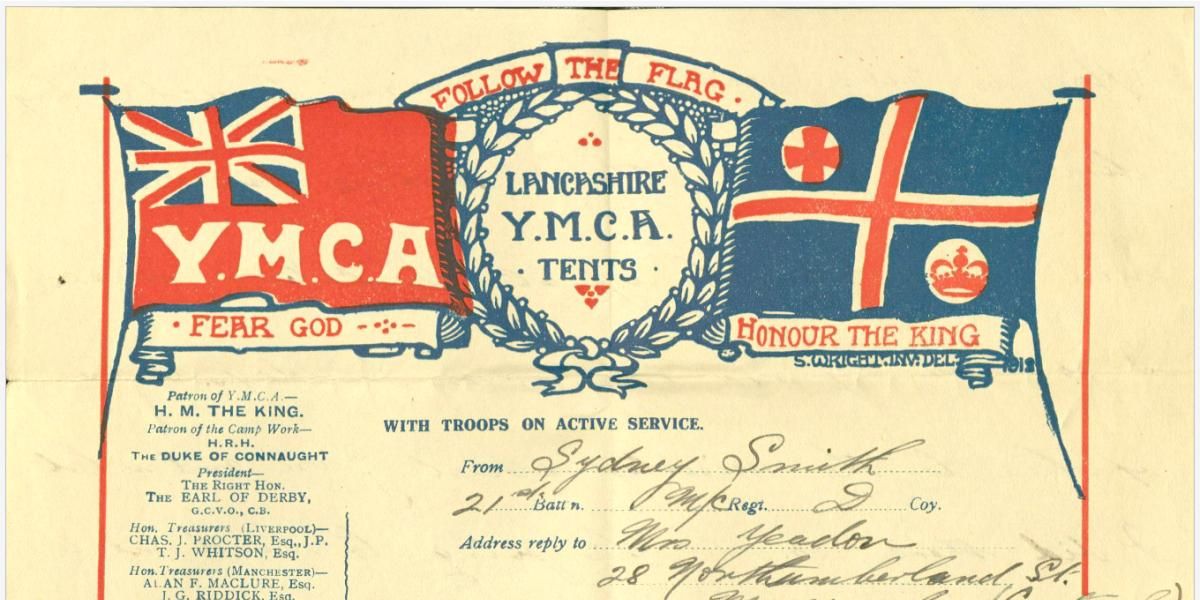
Some of the letters are on beautifully headed stationery.
Most, however, are written in pencil on poor quality paper.
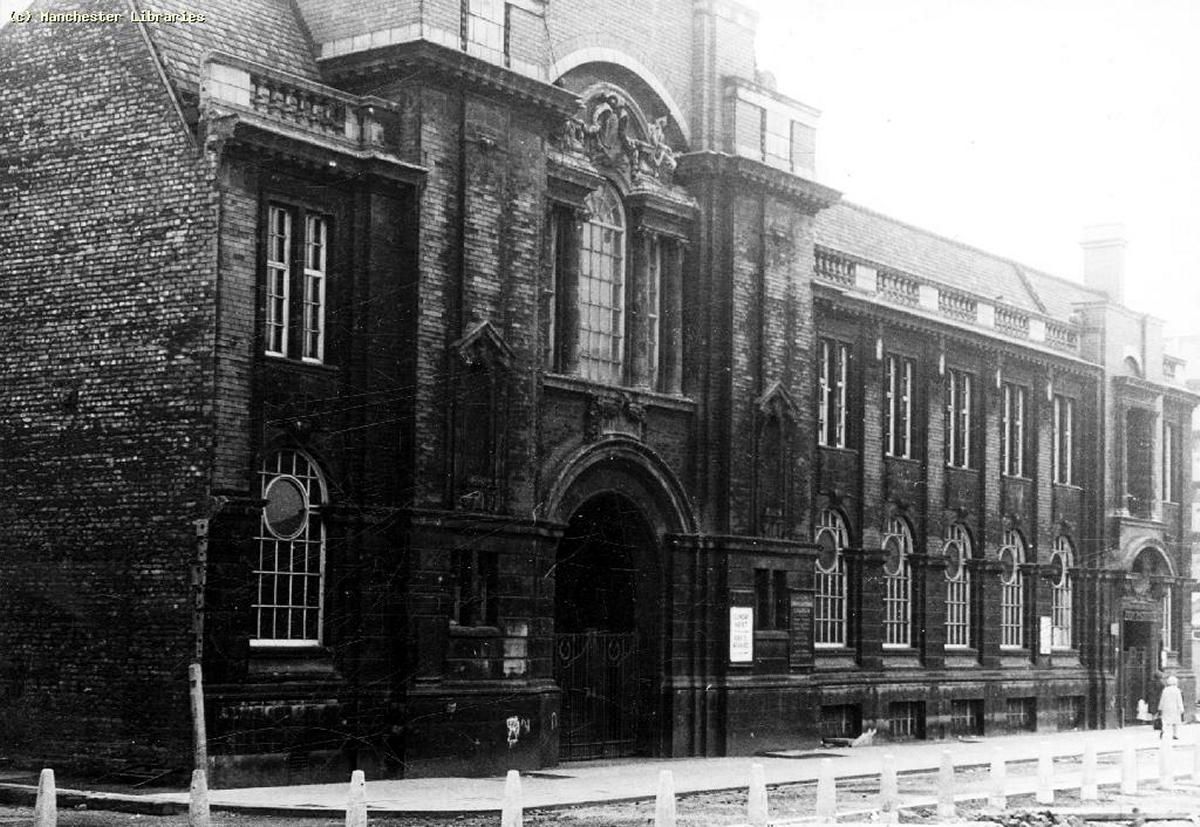
Zion Congregational Church
The Zion Congregational Church and Institute on Stretford Road was funded by Enriqueta Rylands, the widow of John Rylands, andopened in 1911. It was the centre for a wide variety of member activities such as Sunday schools, social gatherings and a Boys' Brigade troop.
Following World War Two, attendance declined and in the 1960s the building was rented out for a variety of secular uses. It was purchased by Manchester City Council in 1988 and and is today the Zion Arts Centre.
The extensive records of the church and Institute are deposited in Manchester Archives.
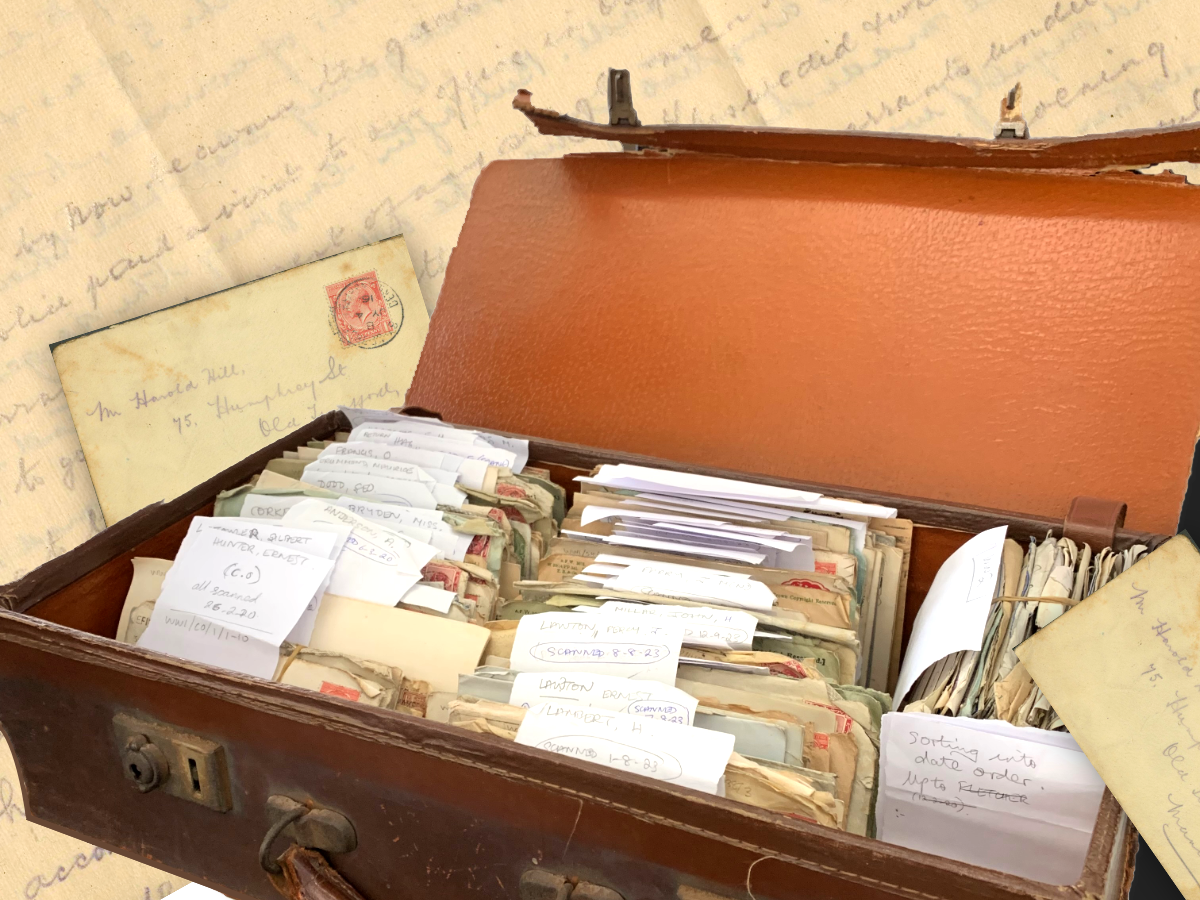
The Letters
Manchester & Lancashire FHS were contacted by a lady who asked if we would be interested in a number of letters written by servicemen during the Great War. This proved to be a substantial collection of around 350 letters written by some 70 servicemen. MLFHS agreed to take the letters under the condition that they were made freely available to the public; a condition to which the Society readily agreed.
The Letters cover the whole period of the war but most were written 1914-1915. Some correspondence is limited to a single letter while other men wrote as many as twenty. It is believed that the letters are only a selection of the correspondence.
All of the letters were addressed to Harold Hill.
When project work is complete, the letters will be deposited in Manchester Archives as part of the Zion Archive.
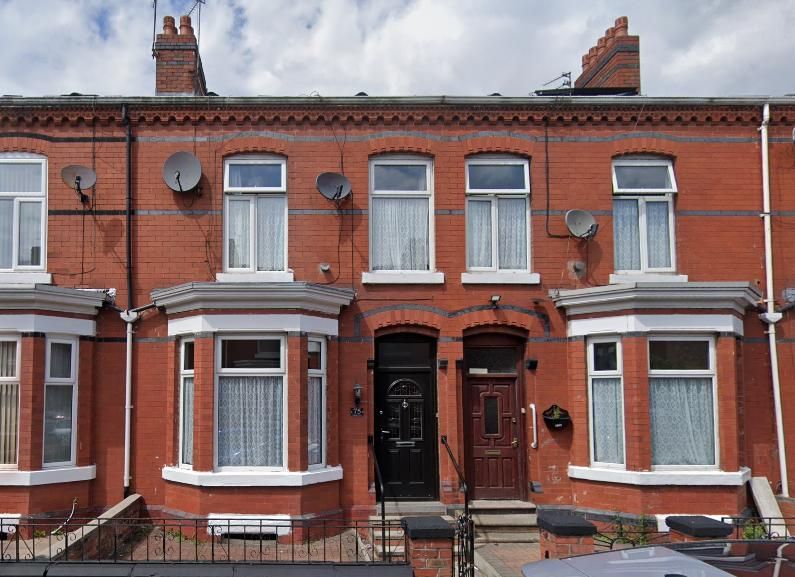
Harold Hill
Harold Hill worked as a clerk for the South Manchester Overseers of the Poor. Away from his work, he served as a Sunday school teacher at the Zion Institute. He lived with his parents at 75 Humphrey Street in Old Trafford (the left hand house in the photo assuming that the houses were not renumbered when the street was renamed as Humphrey Road). Harold gradually rose in his career finally becoming the Chief rating Officer for Manchester City Council. Following his parents' deaths, he and his sister Florence, neither of whom married, remained at Humphrey Street for the remainder of their lives.
Harold did not enlist when war was declared in 1914, neither was he conscripted in 1916. It seems possible that this was on medical grounds. However, his contribution to the war effort was to write to his former Sunday school pupils who were serving in the forces and to send them bibles, prayer books and newspapers as well as copies of Zion's monthly magazine Hand-in-Hand.
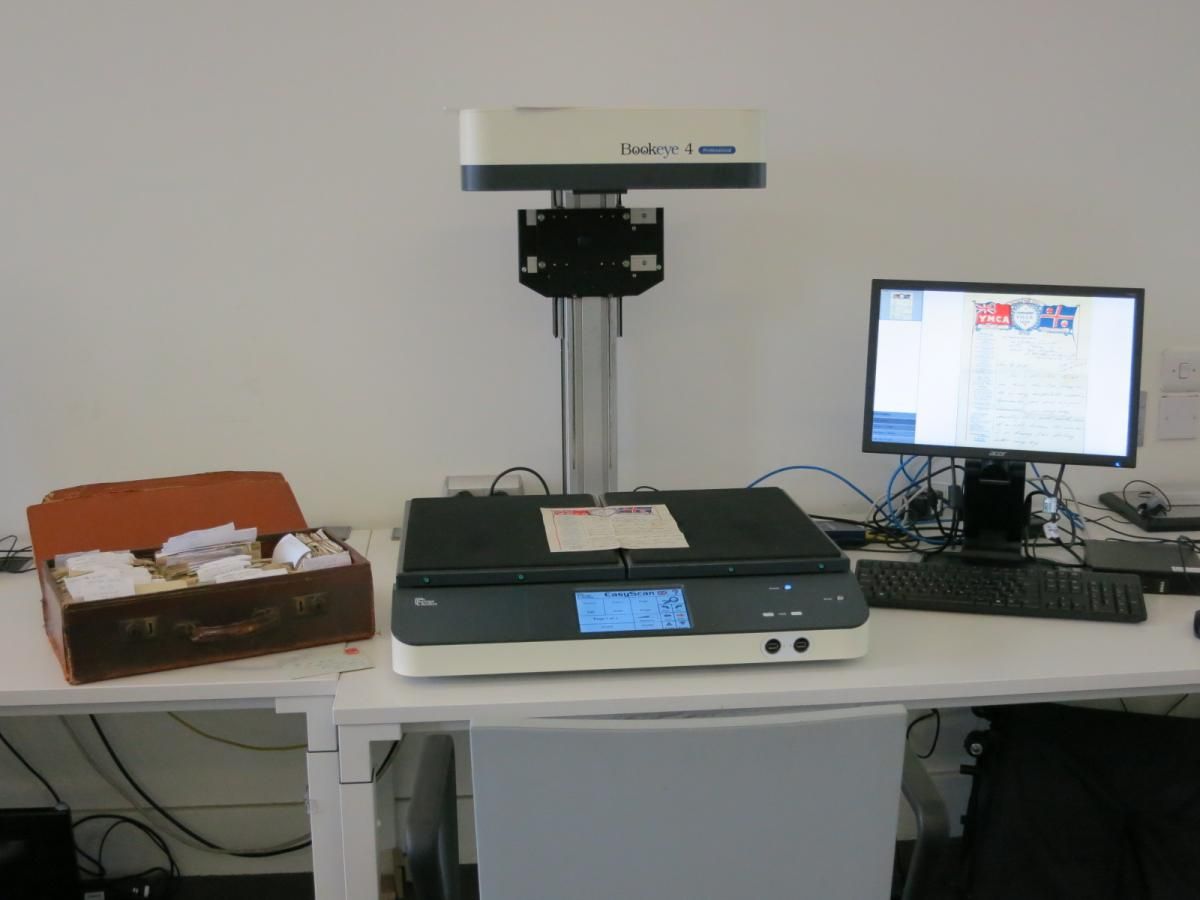
The Project
To fulfil our abligation to make the letters available to the public, our first task, after cataloguing and organising the letters, was to digitally scan each letter. This was not easy since many of the letters had been written in pencil on poor quality paper. However, (mostly!) readable scans were finally obtained.
The second task was to engage a small team of volunteers to transcribe each letter so that those with an interest could be spared the tribulations of both handwriting and the quality of the originals. The transcripts were then incorporated with the scanned originals into a composite document.
The final task was to assemble these documents into a series of web pages and to extract some summary information to assist readers in identifying possible ancestors or relatives. Click the button at the bottom of this page to see the final results.
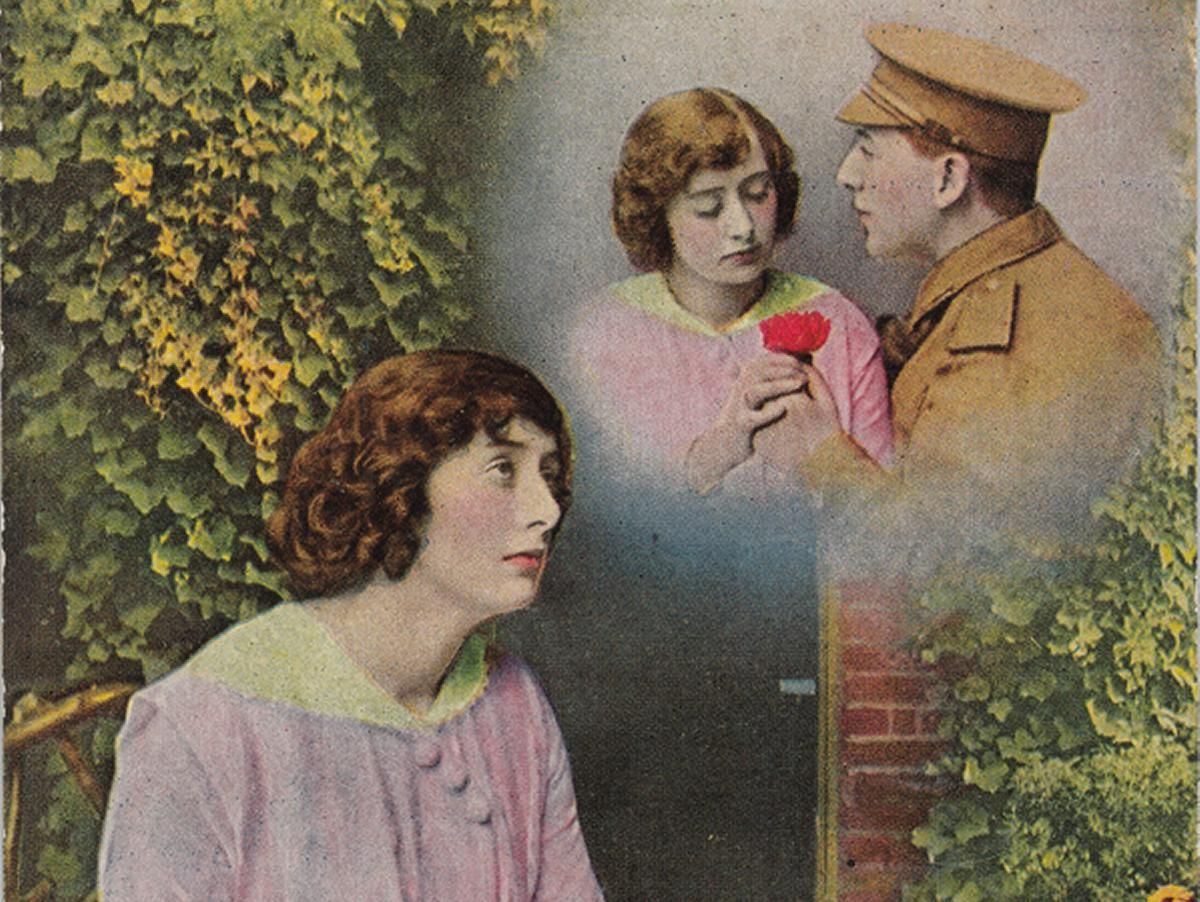
One of yours?
Our aim in making the Zion Letters available to the public is, hopefully, to connect present-day researchers with their ancestors or relatives.
If you find "one of yours" in the collection, or you are able to add any information which would help to identify any of these servicemen, we would be delighted to hear from you.